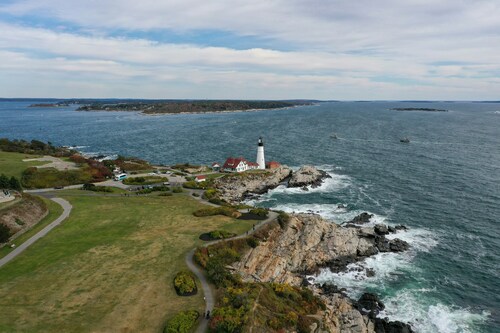Rhode Island’s unique coastal geography presents distinct residential and commercial structure challenges. The Ocean State’s proximity to the Atlantic Ocean creates soil conditions that significantly influence building stability and structural integrity. Moisture levels, salt content, and shifting ground composition all contribute to the complex foundation requirements throughout the region.
Understanding these environmental factors becomes crucial when addressing structural issues. Professional foundation repair in Rhode Island requires specialized knowledge of local soil characteristics and their impact on building foundations. The relationship between soil composition and foundation performance determines the longevity and safety of structures across the Island’s diverse landscape.
Understanding the Island’s Soil Composition
Rhode Island’s geological foundation consists primarily of glacial deposits left behind thousands of years ago. These deposits create a complex mixture of clay, sand, silt, and rocky materials that vary significantly across different regions. The southeastern coastal areas contain more sandy soils, while inland regions feature heavier clay concentrations.
Glacial till dominates much of the state’s subsurface, creating layers of compacted materials that can shift and settle over time. This natural settling process affects how foundations interact with the surrounding ground, particularly during seasonal freeze-thaw cycles, which are standard in New England.
Coastal Environmental Impact on Foundations
Salt air and moisture penetration create ongoing challenges for foundation materials in coastal Rhode Island communities. The constant exposure to humidity and salt particles accelerates corrosion processes in metal components and can weaken concrete structures over time.
Tidal influences affect groundwater levels, creating fluctuating moisture conditions around foundation walls. These changes can lead to:
- Hydrostatic pressure buildup against foundation walls
- Soil expansion and contraction cycles
- Increased risk of basement water infiltration
- Accelerated deterioration of waterproofing materials
- Settlement issues in areas with loose sandy soils
Ocean proximity also increases wind exposure, creating additional structural stresses that foundations must accommodate.
Seasonal Weather Effects on Soil Stability
Rhode Island experiences significant seasonal temperature variations that impact soil behavior and foundation performance. Winter freeze-thaw cycles cause soil expansion and contraction, creating movement that can stress foundation walls and footings. Spring thaw periods often result in saturated soil conditions as snow melts and spring rains increase ground moisture content.
This saturation can reduce soil-bearing capacity and create unstable conditions around existing foundations. Summer heat can cause clay soils to shrink and crack, potentially creating gaps around foundation walls that allow water infiltration during subsequent rainy periods. Fall weather patterns, including nor’easters and tropical storm remnants, bring heavy precipitation that tests foundation drainage systems.
Common Foundation Problems on the Island
Settlement issues frequently develop when structures are built on inadequately compacted fill or naturally soft soils. Differential settlement occurs when different portions of a foundation sink at varying rates, creating structural stress and potential cracking. Due to high groundwater levels and frequent precipitation, basement water infiltration remains a persistent problem.
Foundation walls may develop cracks from hydrostatic pressure, freeze-thaw damage, or natural settling processes. Concrete deterioration accelerates in coastal environments due to salt exposure and moisture penetration. This deterioration can compromise structural integrity and create pathways for water entry into basements and crawl spaces.
Professional Solutions and Prevention Strategies
Addressing foundation issues requires comprehensively evaluating local soil conditions and environmental factors. Professional foundation repair in Rhode Island typically involves soil stabilization techniques, drainage improvements, and structural reinforcement methods tailored to specific site conditions.
Waterproofing solutions address moisture infiltration through advanced sealants and drainage systems. Preventive measures such as proper grading, gutter maintenance, and foundation monitoring help identify potential problems before they become serious structural issues.
Rhode Island’s coastal environment creates unique foundation stability challenges requiring specialized understanding and professional expertise. Property owners benefit from working with experienced professionals who understand local conditions and can provide appropriate solutions for their specific situations. Proactive foundation care helps ensure structural integrity and protects property values throughout the Island’s diverse coastal communities.
